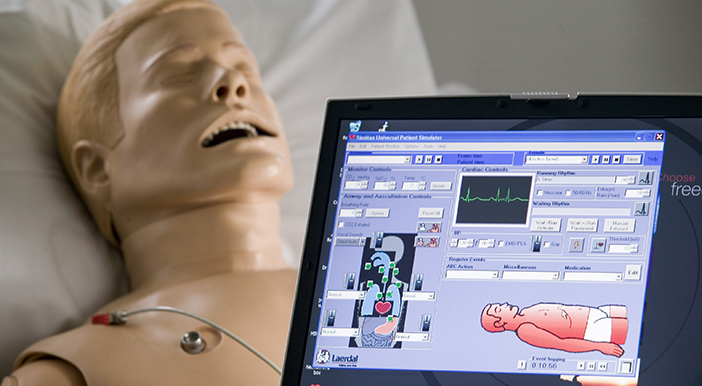Meaningful Mentorship for Students in Emergency Medicine
Lenexa Morais, MS-IV, University of Texas Medical Branch in Galveston, TX
EMRA MSC West Coordinator 2020-2021,
Sarah Smetana, MS-IV, University of Texas Medical Branch in Galveston, TX
Mentorship in Emergency Medicine takes various forms, including shadowing, clinical supervision and training, career advising, research endeavors, or casual conversations to determine the “ins and outs” of EM. Depending on a student’s needs and level of training, mentors can tailor their time and instruction to best help a student develop clinical skills and career goals. In this article, we will highlight the benefits of mentorship, how EMIGs can start their own mentorship program, how students can make their most of their experience, and mentorship through EMRA.
One of the greatest privileges afforded by our home institution, the University of Texas Medical Branch (UTMB), resides within its diverse and enriching Emergency Medicine mentorship program. Guidance provided through this arrangement has been instrumental in the careers of many students as UTMB is an orphan program –meaning that we do not have an affiliated EM residency– since the devastation of Hurricane Ike in September of 2008. Despite this setback, many generous EM physicians have stepped up to fill the void of the lack of mentorship for EM-bound students.
At UTMB, students from all training levels can sign up for longitudinal mentorship through the UTMB Emergency Medicine Interest Group (EMIG). Based on the type of mentorship requested, students are paired with an EM physician mentor and the two work together to set expectations. Many students begin to work with their mentor as early as the first year in medical school to learn about the specialty and begin to develop clinical skills. Other students begin working with their mentor in preparation for fourth year away rotations to get top marks on their SLOEs. For those institutions lacking EM physicians, it is also important to consider alternate forms of mentorship by utilizing the resources available: Reach out to your fourth years for advice before away rotations, network with alumni for helpful tips and suggestions while preparing to apply for residency. For EMIGs without a mentorship program, starting one may seem like a daunting task; however, the future successes and opportunities provided by a mentorship program are well worth the effort.
Starting A Mentorship Program:
This requires a coordinated effort between the student organization and your EMIG faculty advisor. First, approach your faculty advisor and have an open discussion about whether a mentorship program is feasible at your institution. If your advisor has EM colleagues that would be interested in volunteering time to mentor students, it is important to ensure that students would be allowed to participate in patient care at the intended site. If clearance is needed, this would involve your faculty communicating with the Dean of your medical school for clearance.
Once a list of EM physicians is identified, create a designated position of Mentorship Coordinator in your school’s EMIG. This person will be responsible for working with your faculty advisor to collect the physicians’ contact information and general availability. Next, set up a way for your interested EMIG members to sign-up for mentorship. Typical questions asked are: contact info, class year, and what they hope to gain from mentorship (exploring the specialty for fit, clinical mentorship to practice skill, longitudinal mentorship experience, shadowing, research etc.) When we have more mentees than mentors, priority is given to third year students.
From the pool of students, the Mentorship Coordinator will work with EMIG faculty to pair students to a physician. The Mentorship Coordinator is responsible for sending out the introductory email connecting the student and physician, including the contact info and reason for mentorship request. The coordinator should keep a running roster of paired matches and clean out the list each semester as students may switch specialties, graduate, or choose not to utilize their mentor. This model can also be replicated to create a mentorship program between MSIVs and MSIIIs to help during the application season.
Maximizing Your Mentorship Experience:
The most important aspect of mentorship to keep in mind is that students will get out what they put into it. This should be a safe environment where students can receive real-time feedback without the pressure of performing for a grade. Students should take initiative to contact their mentors to set expectations. Staying involved throughout a shift by asking questions, volunteering to do any procedure you can, and setting daily goals to work on for each shift are just some of the ways to make each shift a valuable use of time. Students who dedicate time to continue working with their mentors over the course of multiple shifts will benefit the most. We recommend that students be curious and explore if this specialty is a good fit: try out night shifts, practice signing out on patients, push yourself out of your comfort zone by working to strengthen your weaknesses.
EMRA Mentorship:
We hope that this provides an introductory platform for students interested in pursuing mentorship. For students with difficulty finding a mentor, EMRA has its own mentorship program that connects current residents with medical students. This is a free benefit for EMRA members. When filling out the form please be as specific as possible when detailing your interests, whether they be academic, regional, or clinical pursuits. For more information, please reach out to the EMRA Mentorship Coordinator, Lorena Rodriguez.
For some continued reading on how to choose a mentor, please visit this EMRA article.
Related Content

Jun 25, 2020
Program Director Interview Series: Radosveta Wells, MD | EM Residency Program Director at Texas Tech University Health Sciences Center El Paso, El Paso, TX
In this installment of the Program Director Interview Series we sit down with Radosveta Wells, MD to learn about the EM Residency at Texas Tech University Health Sciences Center El Paso.






